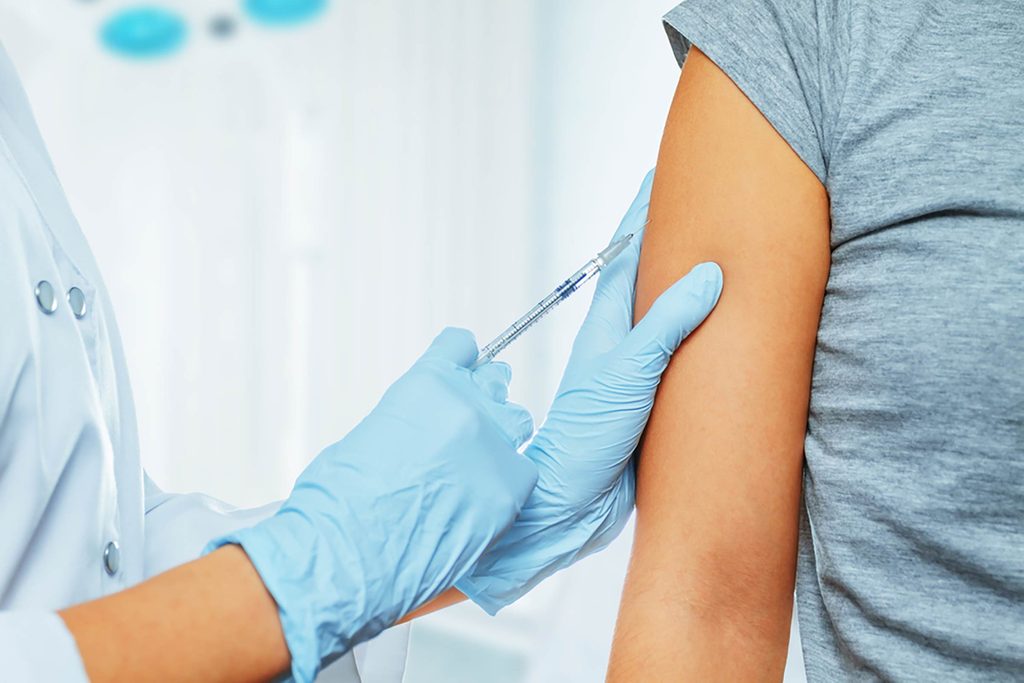This Is Why Parents Need to Be Up-to-Date on All of Their Vaccinations, Too
Updated: Jul. 19, 2022
Parents-to-be: the vaccines you get may be just as important as the ones your baby gets.

Newborn babies are among the most vulnerable to serious illnesses, yet they are too young for vaccines. But there is a way parents can protect them: by getting vaccinated themselves, says Parents.com.
Most newborns catch illnesses from someone in the home, so anyone spending time with babies definitely needs to have up-to-date vaccinations. (But, you should always be careful about letting people kiss and even hold your newborn baby.) Pregnant women who get vaccinated before conception pass on some of their protective antibodies to their babies, and those who breastfeed continue to pass on that protection.
The most important vaccines for parents are: whooping cough (aka pertussis), influenza, tetanus, diphtheria, hepatitis A and B, and the MMR (measles, mumps, and rubella). Whooping cough, usually passed to a baby from a parent, can lead to pneumonia, seizures, brain infection, and death. And in recent years, the number of cases has increased. In 2012, the Centers for Disease Control (CDC) reported the highest number of cases since 1955, and California experienced a statewide epidemic in 2010. Parents of newborns should receive the TdaP booster (tetanus-diphtheria-acellular pertussis) to protect their babies; it protects against whooping cough, as well as tetanus and diphtheria. (Learn more about whooping cough vaccines.)
The MMR vaccine is especially important for people who travel outside of the United States. The flu can also cause severe problems both for pregnant women and newborns, so parents should be sure to get flu vaccines every year, as the virus changes from year to year. Make sure not to make one of these common flu shot mistakes.
While expectant fathers can get vaccines at any time, women should get vaccinated before conception or after they give birth. Here are 10 common myths about vaccines, busted.
“In addition to the direct benefit of preventing birth defects in the fetus and illness in the pregnant woman, vaccination protects against infection with bacteria or viruses by stimulating the body’s immune system to produce antibodies that in many cases are protective,” says C. Mary Healy, M.D., director of vaccinology and maternal immunization for the Center for Vaccine Awareness and Research at Texas Children’s Hospital. “A newborn baby’s immune system is not mature or developed enough to produce these antibodies in the first few weeks to months of life. Antibodies from the mother are transferred to the fetus while still in the womb.”
Sources: Parents.com, WhatToExpect.com, The Pediatric Insider, Bloomberg Businessweek